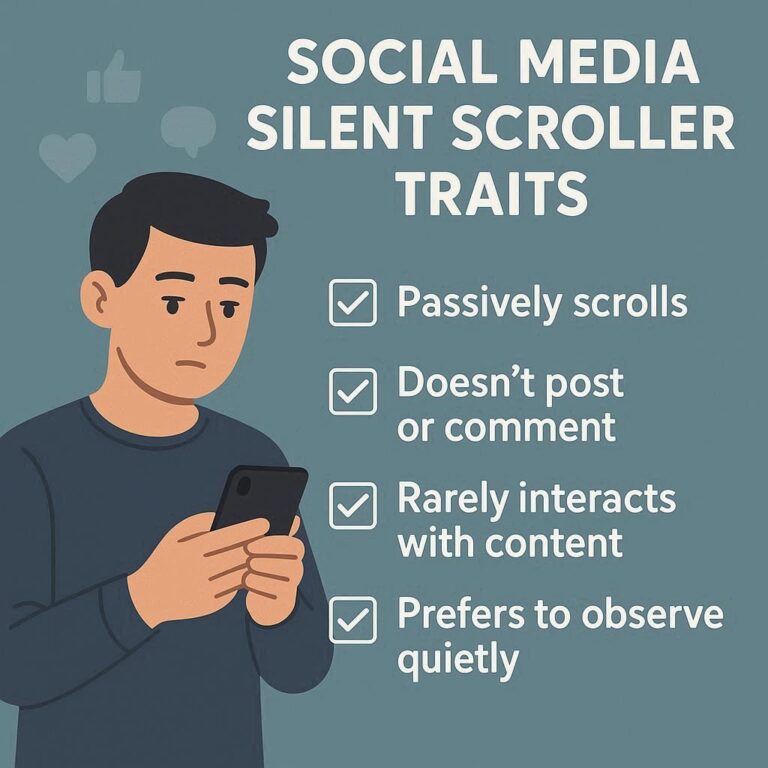
T-Mobile’s UScellular Acquisition: Why People Are Pushing Back
Introduction: A Telecom Deal Stirring Up Trouble
Imagine this: T-, certainly one of the largest names in wi-fi, needs to buy UScellular for $4.4 billion. The deal, introduced in May 2024, might provide T-Mobile a larger slice of the market, specifically in rural regions wherein UScellular has a faithful following. Sounds like a win for T-Mobile, proper?
Not so fast. The T-Mobile UScellular acquisition opposition is making waves, with everyone from everyday customers to government watchdogs worried about what this means for competition, prices, and jobs. This story isn’t just about phones—it’s got echoes in other industries, like M&T Bank branches in Buffalo and Lockport closing. Whether you’re managing a T-Mobile account, hunting for AT&T technology jobs, or curious about M and T Bank careers, this deal could hit close to home. Let’s break it down.
The Telecom World: Who’s Playing and How It Works
A Game of Giants and Underdogs
The U.S. Telecom market is sort of a heavyweight boxing healthy. You’ve got T-t-mobile uscellular acquisition opposition , ATT, and Verizon slugging it out for the top spot, even as smaller players like UScellular carve out their very own turf. T-t-mobile uscellular acquisition opposition got about one hundred million clients, recognised for killer deals and a 5G network that’s lightning-rapid. UScellular, with 4.5 million users, is the move-to for parents in rural towns, providing dependable provider wherein the huge dogs don’t continually roam. ATT, with a massive two hundred million subscribers, is pouring cash into 5G and fiber, developing a ton of ATT technology jobs for techies running on the entirety from networks to cybersecurity.
This opposition maintains costs in take a look at and pushes agencies to innovate. But if T-t-mobile uscellular acquisition opposition snaps up UScellular, it is able to shake matters up, specially in small towns wherein alternatives are already constrained. It’s a chunk like what’s going on in banking, where MT Bank branches in Buffalo and Lockport are remaining to awareness on online offerings. Fewer players can suggest fewer selections, and that’s got human beings worried.

Why This Deal’s a Big Deal
T-t-mobile uscellular acquisition opposition after UScellular’s spectrum—think of it as the invisible roads your phone’s data travels on. That spectrum is key for boosting 5G in rural areas. Meanwhile, AT&T’s racing to keep up, which is why AT&T technology jobs are popping up for folks building next-gen networks. If T-t-mobile uscellular acquisition opposition pulls this off, it could leap ahead, but it might also mean less pressure to keep prices low or services sharp. That’s where the T-Mobile UScellular acquisition opposition comes in, and they’re not staying quiet.
How This Acquisition Could Change Things
What It Means for T-Mobile Customers
If you’ve got a T-Mobile account, you’re probably wondering what’s in store. On the bright side, T-t-mobile uscellular acquisition opposition 5G network could get even better with UScellular’s spectrum, especially if you’re in a rural area where signal’s spotty. Faster downloads, clearer calls—who doesn’t want that? But here’s the catch: the T-Mobile UScellular acquisition opposition says fewer competitors could mean higher bills down the road. If you’re a T-Mobile account holder in a small town, you might also deal with some hiccups—like dropped calls or slower data—while T-t-mobile uscellular acquisition opposition sorts out UScellular’s network. Keep a close eye on your T-Mobile account to stay ahead of any changes.
How It Affects the Competition
AT&T’s got its work cut out. If T-t-mobile uscellular acquisition opposition gets bigger, AT&T will need to hustle, likely pumping more money into 5G and fiber. That’s good news for anyone eyeing AT&T technology jobs, as roles in tech and innovation are on the rise. For UScellular, though, this could be game over as a standalone company. Its workers might face layoffs, and its small-town vibe could get lost in T-t-mobile uscellular acquisition opposition giant network. Other small carriers might start looking for their own buyers, making the telecom world even more top-heavy.
The Government’s Keeping Watch
The folks in charge—the Federal Communications Commission (FCC) and Department of Justice (DOJ)—are digging into this deal to make sure it’s fair. The T-Mobile UScellular acquisition opposition argues it could give T-Mobile too much control, especially in rural markets where UScellular’s a lifeline. Regulators might tell T-Mobile to sell off some assets or promise not to jack up prices. It’s like a teacher making sure the class bully doesn’t take over the playground. Their call will shape what happens next for T-Mobile account holders and competitors like AT&T.
Why People Are Saying No Way
Who’s Against It?
The T-Mobile UScellular acquisition opposition isn’t just a few loud voices—it’s a crowd. Consumer groups like Public Knowledge are sounding the alarm, saying fewer carriers could mean pricier plans. Labor unions, like the Communications Workers of America (CWA), are worried about UScellular workers losing their jobs. State officials in places like Wisconsin and Iowa, where UScellular’s a big deal, don’t want their communities left high and dry. Even industry insiders are skeptical, wondering if this deal will slow down the push for better tech and services.
What’s Got Them So Worked Up?
Here’s the rundown on why they’re pushing back:
-
Less Choice: If UScellular disappears, rural folks might be stuck with just T-Mobile or AT&T. That’s not great for keeping prices down or service up.
-
Bigger Bills: The T-Mobile UScellular acquisition opposition warns that T-Mobile account holders could see higher costs if there’s no one to compete with.
-
Job Losses: UScellular’s call centers and stores could shut down, costing thousands of jobs. It’s a story we’ve seen before, like M&T Bank branches in Buffalo and Lockport closing.
-
Rural Trouble: UScellular’s all about small towns. If T-Mobile takes over, rural customers might deal with spotty service during the switch.
-
Too Much Power: Regulators are nervous that T-Mobile could control a quarter of the market, which might mean less innovation and higher prices.
The Bigger Picture: It’s Not Just About Phones
This acquisition isn’t happening on its own. Take a look at banking, where M&T Bank branches in Buffalo and Lockport are closing as the bank goes all-in on digital services. It’s a move to save money, but it’s leaving some towns without local banking and workers out of jobs. Sound familiar? It’s the same kind of shake-up we’re seeing with T-Mobile and UScellular. Both industries are chasing bigger profits and tech-driven growth, but it’s often regular people who feel the pinch.
The good news? There are still opportunities out there. M and T Bank careers are shifting toward digital roles—think apps, cybersecurity, and customer support. In telecom, AT&T technology jobs are booming as the company doubles down on 5G and AI. The T-Mobile UScellular acquisition opposition is fighting to make sure these changes don’t leave consumers and workers in the dust.
How T-Mobile, UScellular, and AT&T Compare
|
Feature |
T-Mobile |
UScellular |
AT&T |
|---|---|---|---|
|
5G Coverage |
Super-fast, nationwide 5G |
Patchy 5G, but great in rural areas |
Strong 5G, focused on cities |
|
Plan Pricing |
Unlimited plans from $60/mo |
Affordable, from $30/mo |
Premium plans from $65/mo |
|
Customer Base |
~100 million users |
~4.5 million users |
~200 million users |
|
Key Strength |
Cheap plans, quick 5G rollout |
Small-town service, reliability |
Top-tier 5G, fiber internet |
|
Technology Jobs |
5G and network jobs |
Few tech roles, local focus |
Tons of AT&T technology jobs |
This table shows why T-Mobile’s eyeing UScellular’s rural reach—and why losing UScellular could change the game.
What the Experts Think
People who know telecom and economics are weighing in, and they’ve got strong opinions.
Telecom expert Dr. Jamie Torres says:
“T-Mobile’s grabbing UScellular to boost its 5G in rural spots, but it’s a risky move. Fewer competitors could mean higher prices and less reason to innovate. The government’s got to keep a close eye on this.”
Economist Dr. Lisa Chang adds:
“This deal’s part of a bigger trend, like M&T Bank branches in Buffalo and Lockport closing. Companies want to streamline, but it’s small towns and workers who often get hit hardest. Regulators need to step up.”
These takes show why this deal’s about more than just T-Mobile getting bigger.
What You Can Do
For T-Mobile Customers
If you’ve got a T-Mobile account, here’s how to stay on top of things:
-
Check Your Account: Pop into T-Mobile’s app or website to keep tabs on your T-Mobile account. Look out for any rate or carrier adjustments because the deal unfolds.
-
Shop Around: If you’re concerned approximately prices going up, test out ATT, Verizon, or smaller providers to peer if they’ve got better deals for you.
-
Stay within the Know: Keep up with information approximately the acquisition, in particular in case you’re in a rural location where UScellular’s network subjects . It could affect your service.
For Job Seekers
Even with all this change, there are jobs to be had:
-
AT&T Technology Jobs: AT&T’s going big on 5G and AI, so AT&T technology jobs in network engineering, cybersecurity, and software are hot. Check their career site for openings.
-
M and T Bank Careers: Sure, M&T Bank branches in Buffalo and Lockport are closing, but the bank’s hiring for digital roles like app development and data crunching. Visit their website for M and T Bank careers.
FAQ: Your Burning Questions Answered
1. Why’s there so much pushback against the T-Mobile UScellular acquisition?
The T-Mobile UScellular acquisition opposition is worried about less competition, higher prices, job cuts, and service issues, especially in rural areas where UScellular’s a big deal.
2. What’s this mean for my T-Mobile account?
T-Mobile account holders might get better 5G, but there’s a chance of price hikes or service glitches, particularly in small towns, as T-Mobile takes over UScellular’s network.
3. What’s the government doing about it?
The FCC and DOJ are checking if the deal hurts competition or consumers. They might make T-Mobile follow rules or even stop the acquisition.
4. How’s this like other business moves?
It’s similar to M&T Bank branches in Buffalo and Lockport closing—both are about companies getting leaner, but it can hurt local jobs and services.
5. Are there still jobs in telecom or banking?
You bet! AT&T technology jobs are growing with 5G and tech advancements, and M and T Bank careers offer roles in digital banking and analytics.
The Bottom Line
The T-Mobile UScellular acquisition opposition is fighting for a fair deal—one that doesn’t leave customers, workers, or small towns behind. As T-Mobile pushes to grow, this story’s about more than just phones. It’s about choice, jobs, and keeping industries in check. From M&T Bank branches in Buffalo and Lockport closing to the rise of AT&T technology jobs and M and T Bank careers, we’re seeing big changes across the board. Whether you’re managing a T-Mobile account or looking for your next job, stay sharp and keep an eye on what’s next.







1 thought on “T-Mobile UScellular Acquisition Opposition: Impacts and Insights”